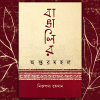How “American” Is American Pop Culture?

I loved Steven Spielberg's E.T. the Extra Terrestrial (1982) as a child. I can't tell you the number of times I've watched it with my mother. It was something of a weekend ritual at one point.
So, imagine how gutted I felt upon discovering that one of my favourite works in cinema was essentially a rip-off.
E.T. the Extra Terrestrial (1982) was never Spielberg's work to begin with. It was based on an original work titled The Alien (1967) by the legendary Bengali writer and filmmaker Satyajit Ray. We all firmly acknowledge it; half the world's population still credits Spielberg with the creation of E.T.
Welcome to the Art of Re-packaging Cultural Elements 101, brought to you by American Pop Culture.
How many of you know what the following three films – Darren Aronofsky's Black Swan (2010) and Requiem for a Dream (2000), as well as Christopher Nolan's Inception (2010) – have in common? Here's a name to help put things into perspective for you: Satoshi Kon. One of Japan's most revered filmmakers and manga artists. Kon's work in anime has received plenty of critical acclaim. Alas, Kon was unable to establish himself as a global icon through his works, unlike filmmakers Aronofsky and Nolan. The latter two essentially plagiarised the works of the former, added their respective Americanised spin to it, and marketed it for a global audience. Since Kon is no longer alive to hold the two filmmakers accountable for theft of intellectual property, here's what our filmmakers say: "We were simply inspired."
The meme about copied homework comes to mind.
Let's talk business. How much money does the USA rake in while ripping off other cultures? The answer: plenty.

Hollywood alone has profited tremendously over the years remaking foreign films. Popular examples include Martin Scorsese's The Departed (2006) which grossed 132 million dollars after being remade from the Hong Kong action film Internal Affairs (2002); the Godzilla movie that came out in 1998, part of Japanese film studio Toho's Gojira franchise, was the ninth highest grossing film in the American box office that year, and upon being remade by Legendary Entertainment and Warner Bros. Pictures in 2014, grossed over 500 million dollars worldwide.
Outside Hollywood, we have even more white-owned businesses which tend to pass off the act of whitewashing other cultures as a "modern makeover". In January 2021, an American business based in Dallas made headlines in several news portals for attempting to "refresh" the traditional Chinese game of Mahjong for "stylish masses", selling each set for hundreds of dollars. According to the white owners of "The Mahjong Line", founder Kate LaGere found the traditional Mahjong tiles to be unsuitable for her personality and sense of style, and hence sought to remake the game in her own image: a white American woman with no ties to the Chinese culture.
America at this point has a long and extensive history of re-packaging elements of other cultures, and subsequently presenting them to a global audience as part of the American pop culture. From the exploitation of sacred Native American dreamcatchers as a "Bohemian theme" or attempts to steal the spotlight away from Asian filmmakers through Hollywood, the distinctive white American-ness of American pop culture clocks in at about 20 percent, give or take.
Rasha Jameel is your neighbourhood feminist-apu-who-writes-big-essays. Remind her to also finish writing her bioinformatics research paper at [email protected]

 For all latest news, follow The Daily Star's Google News channel.
For all latest news, follow The Daily Star's Google News channel. 








Comments